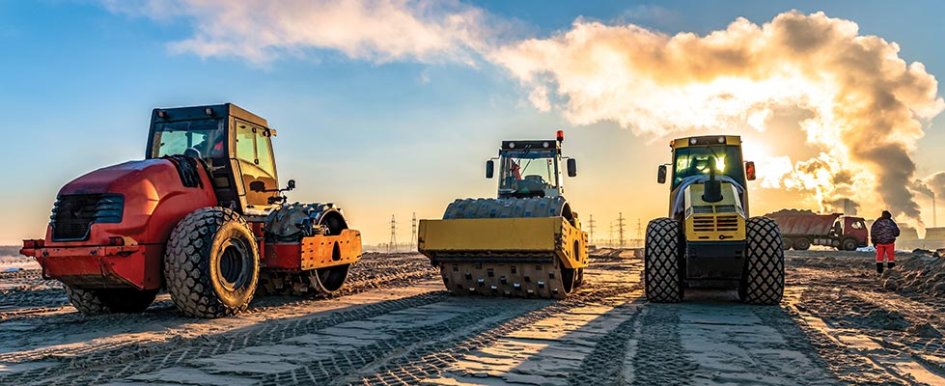
In an industry as dynamic and fast-paced as construction, efficiency and flexibility are paramount. One key strategy that construction companies may consider to maintain a competitive edge is leasing equipment. It’s important to note that when it comes to buying, renting or leasing there is no wrong choice — every business is unique, and the decision comes down to what’s best for your specific needs. That said, leasing is an option growing in popularity.
According to The White Clarke Group Global Leasing Report, the global leasing industry grew 131% over nine years. That significant uptick is no surprise given the myriad of benefits, ranging from cost-effectiveness to maximizing fleet utilization and accessing the latest technology.
In this article, we delve into the advantages of leasing construction equipment and why you may want to consider leasing as part of your comprehensive fleet management strategy.
1. Cost Savings
One of the most apparent benefits of leasing construction equipment is cost savings. Purchasing construction equipment requires an upfront investment, which can strain a company’s finances, particularly for smaller or new businesses. Leasing allows companies to acquire the necessary equipment with lower initial expenditure. Leasing agreements often include maintenance and servicing costs, relieving the lessee of additional financial considerations.
2. Flexibility & Scalability
Construction projects are diverse and dynamic, often requiring different types of equipment at various stages. Leasing offers greater flexibility, enabling companies to access a wide range of machinery tailored to specific project requirements. Additionally, as project needs evolve, leasing allows for easy scalability. Companies can adjust their equipment inventory according to project demands without the management of buying or selling machinery.
3. Equipment & Tech Access
Leasing enables construction companies to access the latest and most advanced equipment without the full cost associated with purchasing new machinery. Leasing agreements often include options to upgrade to newer models or technologies, ensuring that companies always have access to the most efficient and cutting-edge equipment available. This access to state-of-the-art equipment can enhance productivity, efficiency and comfort on construction sites. Companies can leverage the latest technology, helping them complete projects more efficiently and with greater precision, ultimately improving their competitiveness in the market.
4. Reduced Maintenance & Repair Costs
Maintenance and repair are inevitable expenses in the construction industry. However, when leasing equipment, costs may be covered by the lessor, reducing the financial burden on the lessee. Some lease agreements include provisions for routine maintenance, servicing and repairs to help equipment remain in optimal condition throughout the lease term. This not only saves money but also minimizes downtime. When considering a lease, talk to your dealer about the options to understand what’s covered.
5. Improved Cash Flow Management
Beyond saving money from an upfront investment, leasing construction equipment also allows business owners more flexibility for cash flow management. Companies can preserve their liquidity for other essential aspects of their business. Leasing allows for predictable monthly payments, making budgeting more manageable for companies of all sizes.
6. Tax Advantages
Leasing can offer significant tax advantages for businesses. Lease payments are typically considered operational expenses rather than capital expenditures, allowing companies to deduct them from their taxable income. Leasing may also enable companies to take advantage of tax incentives or credits associated with equipment leasing, further reducing their tax liability. We recommend that you consult your business accountant first to make sure your equipment is eligible, as well as take advantage of the many resources on the IRS website.
7. Enhanced Asset Management
Leasing offers construction companies the opportunity to streamline asset management processes. Instead of bearing the responsibility of asset disposal or resale at the end of equipment life cycles, companies can simply return leased equipment to the lessor. This eliminates the hassle of managing aging or obsolete machinery and allows companies to focus on their core competencies without being burdened by asset management tasks.
From cost savings and flexibility to access to cutting-edge technology, the advantages of leasing are undeniable. By embracing leasing as a strategic approach to equipment acquisition, construction companies can position themselves for success in an increasingly competitive industry landscape.
